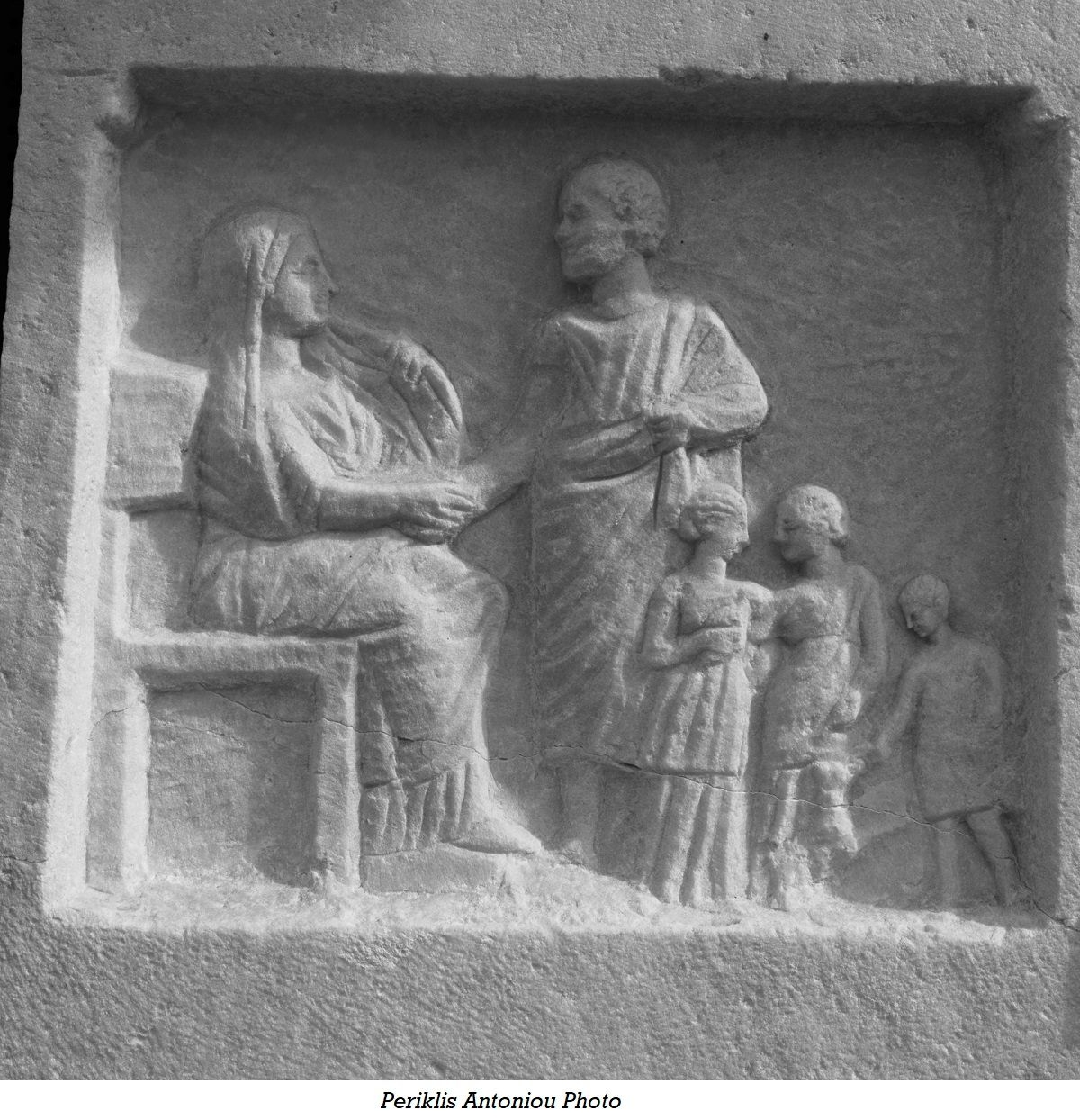The subject of the following paper is the selection of an article from the online journal "Systemic Thinking and Psychotherapy" that influenced the author on an individual, family and professional level. I suppose that the aim of the invitation of writing this is to provide feedback. The journal’s editorial team asks its readers to choose through all the articles the one (or ones) that made a difference. Which articles moved and motivated the readers with their topic, approach, language, etc. I assume that all this information will help in the development of the journal. On my part, I recognize my need to maintain a connection and communication with my old instructors and supervisors. Perhaps this need is best met through the writing of a paper for the journal. In a way, a swap of roles occurs, where he who used to be the reader of the journal, now becomes the author.
The journal’s open invitation was a challenge for me. Not only because through the ten years of its publication there were many interesting articles that I read but also because, mainly in the context of undergraduate studies, I had formed an opinion that the knowledge of texts remains in the texts. Fortunately, this disappointing experience changed over time and I was pleased to study articles and books that not only offered a reading pleasure but also a remarkable transfer of knowledge. HE.S.T.A.F.T.A.’s journal published many articles from different authors, which had these elements.
If I had to choose a single article that "spoke" directly to my individual, family and professional life it would be the "Families and therapists in the face of economic crisis. Challenges and opportunities". The article was based on the presentation of Dr. Valeria Pomini (Family and Couples Psychotherapy Clinic – First Psychiatric Clinic of the National and Kapodistrian University of Athens) at the 9th International Conference of the European Family Therapy Association (EFTA) held in Athens in 2016. Emilia-Maria Legaki, Lefteris Mellos, Zacharoula Pantazi, Xenia Pappa, M. Soldatou (Family and Couples Psychotherapy Unit, Aiginiteio Hospital first Psychiatric Clinic of the University of Athens) and Professor Dr.VlassisTomaras (Family and Couples Psychotherapy Unit, Aiginiteio Hospital, First Psychiatric Clinic of the University of Athens) were co-authors.
The article describes the difficulties of families and therapists during the period of the economic crisis. However, it also outlines some optimistic perspectives. Pomini et al., (2017) reported results like "greater family cohesion, solidarity within the extended family as well as the community, the redefinition of values, the simplification of family lifestyle and daily habits, the enhancement of the female role in the family system and her subsequent empowerment, the activation of adjustment strategies". Looking back, I can recognize many of these findings in my own reality.
The constant reductions in salary, the increase in taxes, and the pressure of a mortgage changed my sense of "identity", like the majority of Greeks. To be more specific, my previous financial well-being enabled me to enjoy all the things that made me feel like "myself". The participation in scientific conferences and training, the trips, the holidays on the occasion of attending a concert, the purchase of musical instruments and the necessary music technology, gave me great satisfaction.
All these were lost in a short period of time and as a result, my image of myself also changed. I was no longer the person who wanted to evolve through art and science. I was facing the consequences of the economic crisis and in this difficult situation, I had to redefine my values, habits and priorities. Looking back at that period today, I can say with pride that we managed to make an important family decision. This was to support the children in education and knowledge acquisition. Investing money for this purpose was a priority and gave meaning to all other cuts. The "parental subsystem" may have cut back on many consumption habits for itself, but ultimately, we were able to enjoy the successes of our children. These changes in priorities were not easy to make. The tensions brought about by the drop in income were inevitable.
Pomini et al. (2017) stated regarding the issue: "The challenges in family relationships are intensified by the effects of the crisis, a fact that is made evident in the way the reactions of each member can be directly associated with the overall ability of the family to function". The way each family deals with the crisis depends on factors such as: The stage of its life cycle, the way it "learned" to react to similar difficulties in the past, the amount of stressful life events, the quality of relationships between its members, the material and spiritual reserves, the resilience of the members and the family as a whole. (Pomini et al., 2017).
In addition, Pomini et al. (2017) mentioned that "feelings of insecurity and uncertainty were beginning to form a therapeutic context of "resonance", which could be characterized as rather intense if compared to previous years since the anxiety about the unknown course of the crisis became an experience shared by everybody in the therapeutic system".
I recognized this "resonance" immediately. Many users of mental health services were seeking help because they felt pressure due to the financial crisis. I had the same experience with them. The coordination of the two systems, due to the economic crisis, was obvious. Furthermore, some clients compared their own professional status with mine. Pomini et al. (2017) wrote that "clients expressed a hidden hostility against therapists employed by the public sector (making claims such as "at least you have secured and steady employment").
This aggression was also exhibited by other people as well, not just users of mental health services. I remember reacting sometimes with humor and sometimes with embarrassment to rumors circulated by journalists and local politicians and others, who went as far as to describe the abolition of the service I work for. As a public sector employee, I felt as if I was losing the ground beneath my feet.
It is truly therapeutic for a person to realize that he is not the only one experiencing a situation. Human problems have common denominators. When one learns that other people have similar feelings, dilemmas and experiences, the feeling of isolation is dissolved and that of relief emerges. This process can be considered a "welcoming to the human race" (Irvin Yalom, 2006). This could have been experienced in a psychotherapeutic group but in this occasion it was done by studying an article that was published.
Finally, after reading the article and recognizing similar personal experiences, I further researched the subject. I was not surprised to see a large number of publications about therapy in a period of economic crisis, the "value" of therapists in it, the impact of the crisis on mental health and its effects on the quality of mental health services. I sense that in the future, more articles will focus on the direct interests of readers and will motivate them with the help of the identification of experiences. I am also sure that fascinating articles written from both the heart and the mind will continue to be published in the online journal of HESTAFTA. May it continue to inspire its readers for many years to come!!!!
Bibliography
- Πομίνι Β., Λεγάκη Α.Μ., Μέλλος Λ., Πανταζή Ζ., Παππά Ξ., Σολδάτου Μ., Τομαράς Β.. «Οικογένειες και θεραπευτές στη δίνη της οικονομικής κρίσης. Προκλήσεις και ευκαιρίες». Συστημική Σκέψη και Ψυχοθεραπεία. Τεύχος 10. Μάιος 2017. [Θεραπευτές και οικογένειες στη δίνη της οικονομικής κρίσης: Προκλήσεις και ευκαιρίες – Ε.Ε.Σ.ΣΚΕ.Ψ.Ο. (hestafta.org) Πρόσβαση στο διαδίκτυο 15/3/2022.
- YalomI., Leszcz M.. «Θεωρία και πράξη της ομαδικής θεραπείας». Εκδόσεις Άγρας. Αθήνα 2006.


